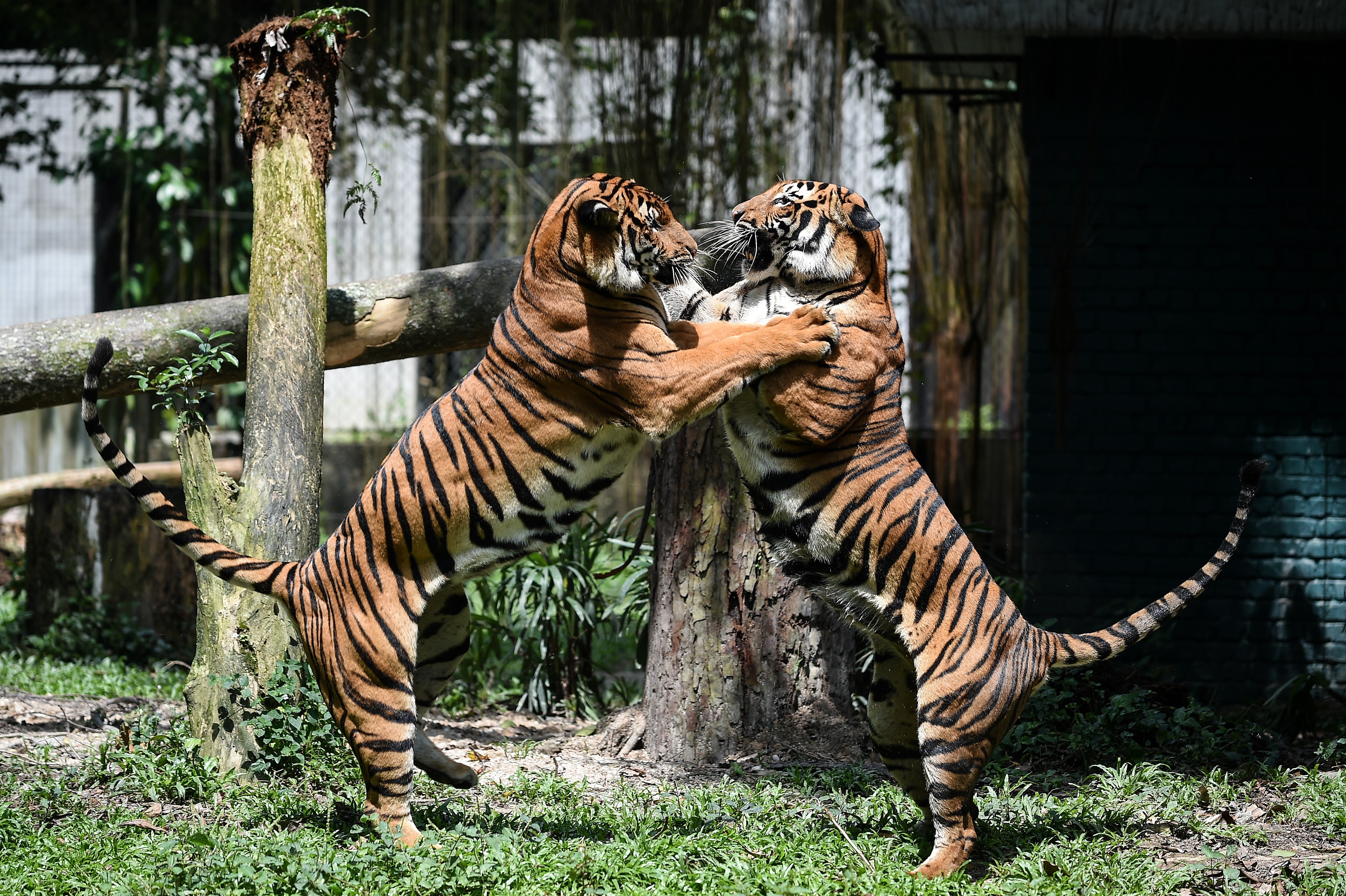Two ultra-rare Malayan tiger cubs born in Singapore, zoo announces
The new-born feline siblings are a significant addition to the population of Malayan tigers that is currently estimated to be 150

Your support helps us to tell the story
From reproductive rights to climate change to Big Tech, The Independent is on the ground when the story is developing. Whether it's investigating the financials of Elon Musk's pro-Trump PAC or producing our latest documentary, 'The A Word', which shines a light on the American women fighting for reproductive rights, we know how important it is to parse out the facts from the messaging.
At such a critical moment in US history, we need reporters on the ground. Your donation allows us to keep sending journalists to speak to both sides of the story.
The Independent is trusted by Americans across the entire political spectrum. And unlike many other quality news outlets, we choose not to lock Americans out of our reporting and analysis with paywalls. We believe quality journalism should be available to everyone, paid for by those who can afford it.
Your support makes all the difference.A wildlife reserve in Singapore welcomed a pair of Malayan tiger cubs, the first successful birth of the ultra-rare species in the forest reserve since 1998.
A native of peninsular Malaysia, the Malayan tiger faces extinction along with five other remaining sub-species of tigers around the world, and have been classified as critically endangered on International Union for Conservation of Nature.
The birth of the feline siblings at the Wildlife Reserves Singapore (WRS) is a significant addition to the population of the subspecies that is currently estimated to be 150, Dr Cheng Wen-Haur, the deputy CEO and chief life sciences officer for WRS, was quoted as saying by Channel News Asia.
The WRS team is closely monitoring the health of the cubs and the mother using closed-circuit cameras.
Last year, four wildlife parks across Singapore also welcomed close to 400 babies across 107 species, said WRS. Of these, about 29 species are listed under IUCN’s red list of endangered beings.
“A key goal of breeding wildlife in our parks is to achieve sustainable populations of species under human care,” said Dr Cheng. “These animals act as ambassadors for their wild counterparts, connecting people with wildlife and help us tell their story through community engagement and education.”
“Depending on species and circumstances, these zoo-born progenies may also serve as assurance colonies that could one day be used to strengthen wild populations,” Dr Cheng said.



Join our commenting forum
Join thought-provoking conversations, follow other Independent readers and see their replies
Comments